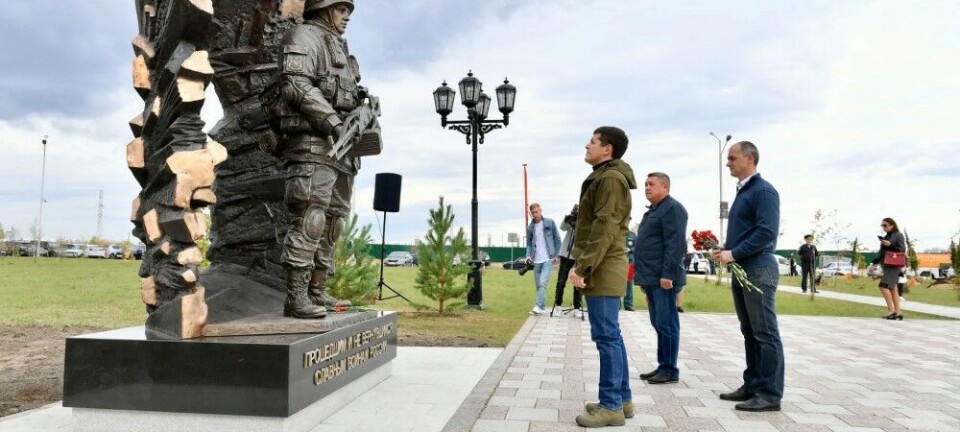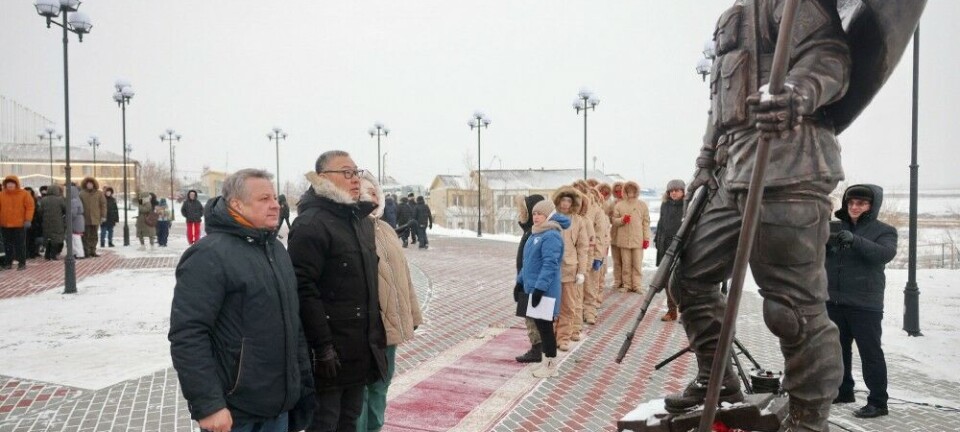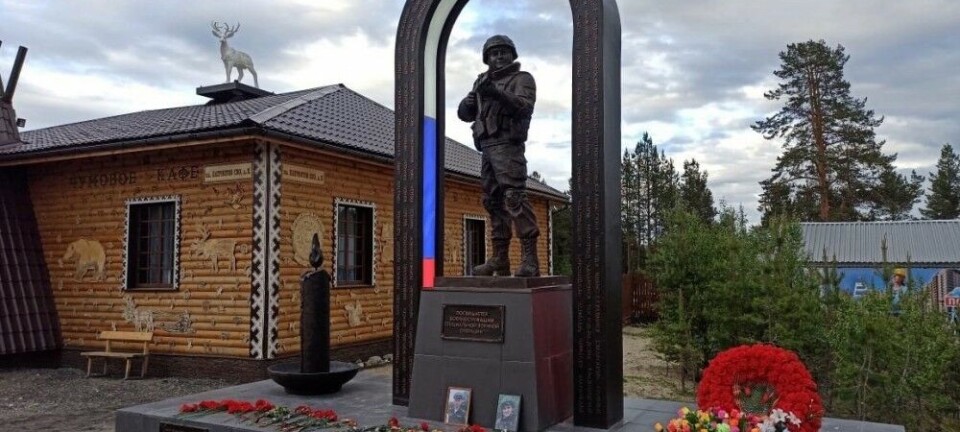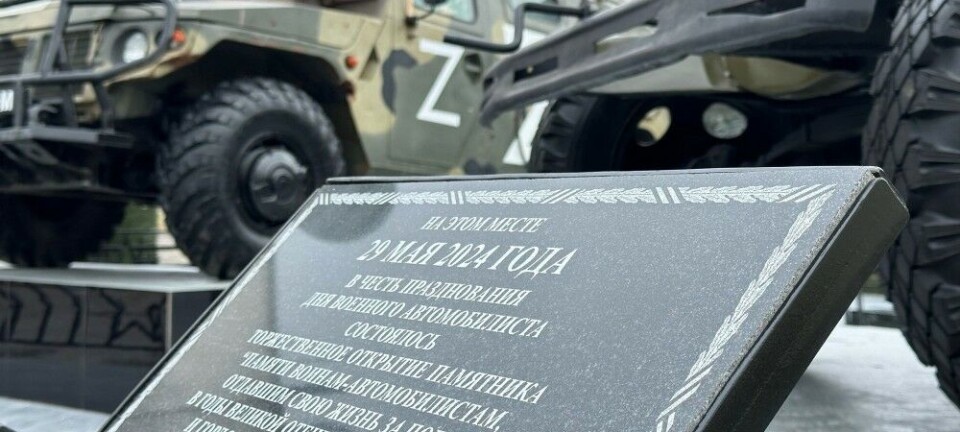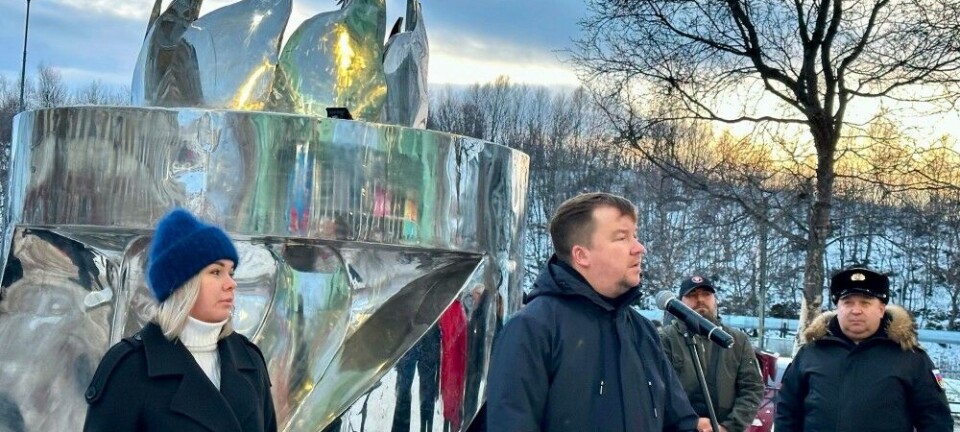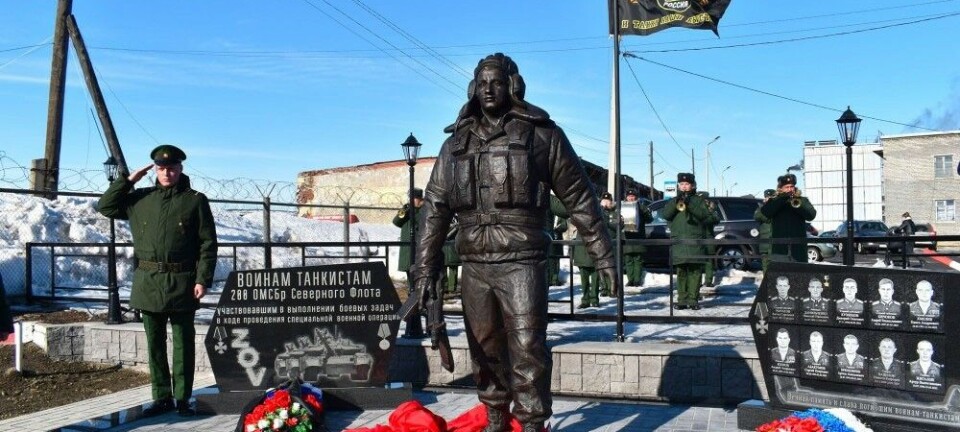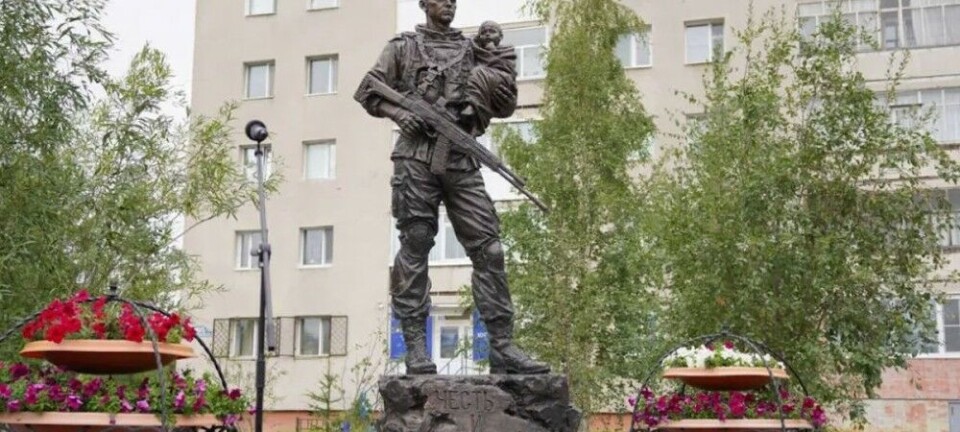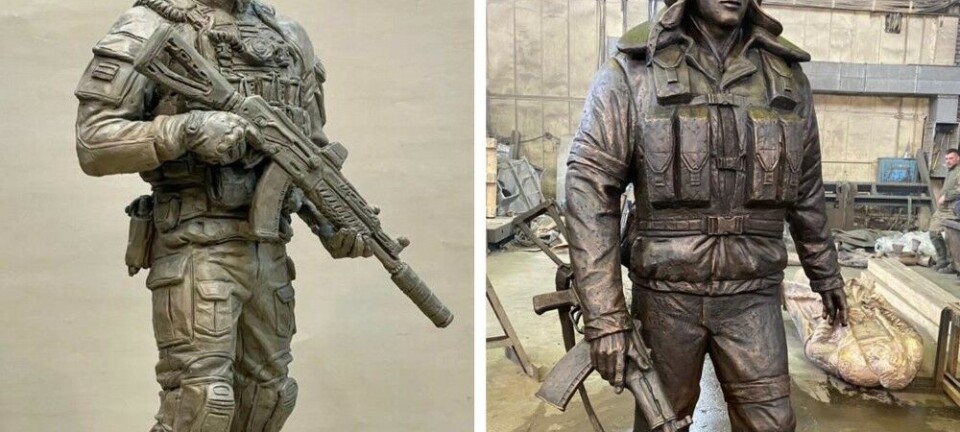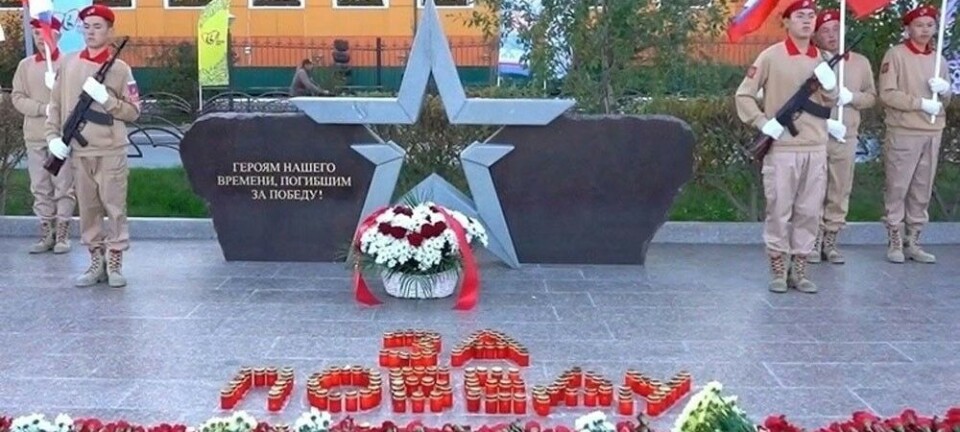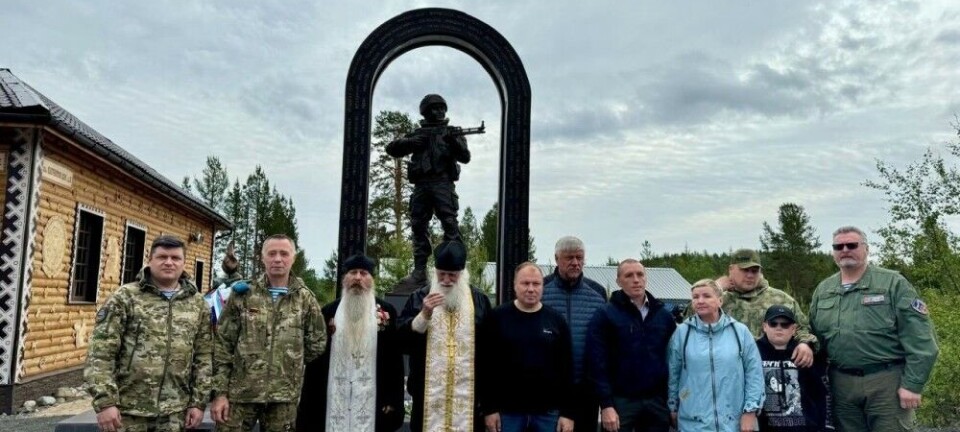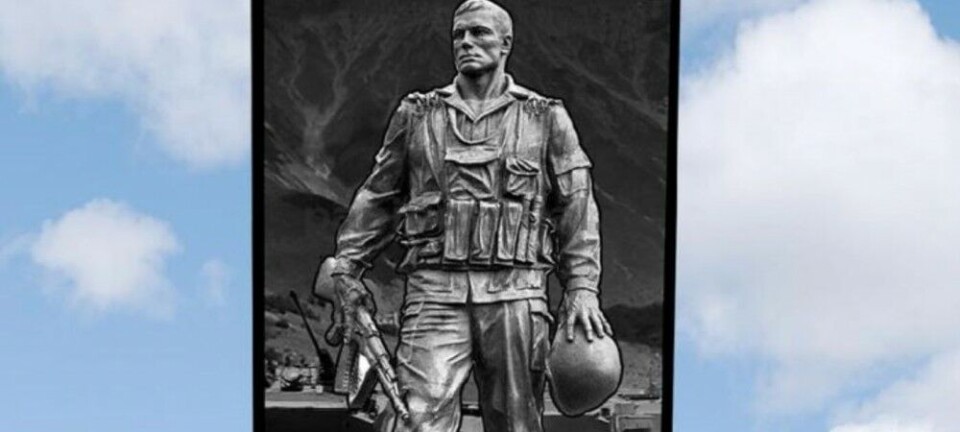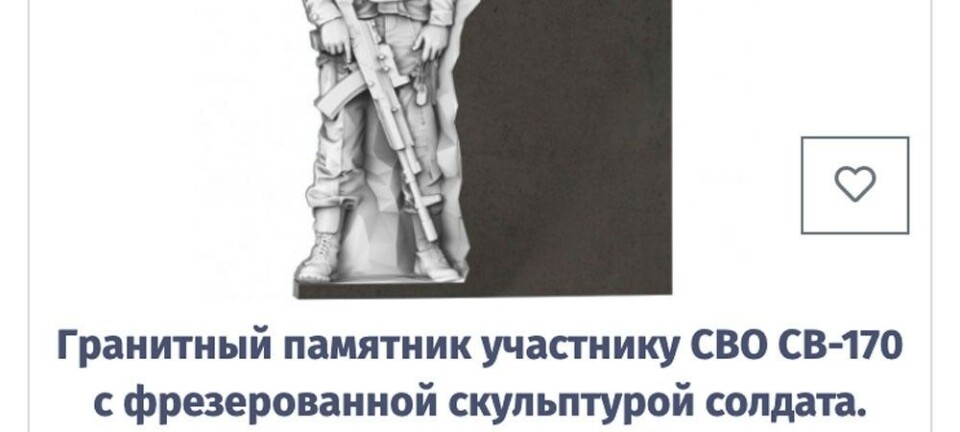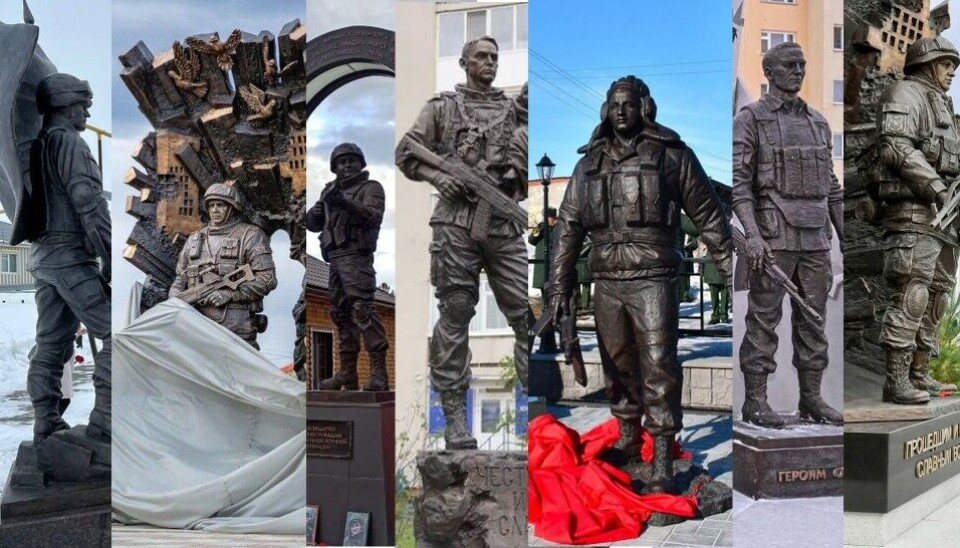
Russia is mass producing new war memorials that glorify death for the motherland
Like the many hundreds of memorials currently erected all over Russia, the new soldier statue in the far northern town of Lovozero embodies aggression and continued war.
Lovozero is center for the indigenous Sámi people in the Kola Peninsula and the new monument is reportedly funded by Ivan Golovin, a member of the region’s so-called Council of indigenous peoples.
It shows a soldier with a raised machine gun pointing straight against the local village. On an arch surrounding the warrior are written the names of all regional capitals of Russia, including the partly occupied regions of Donetsk, Luhansk, Kherson and Zaporizhzhia, a local information site reports.
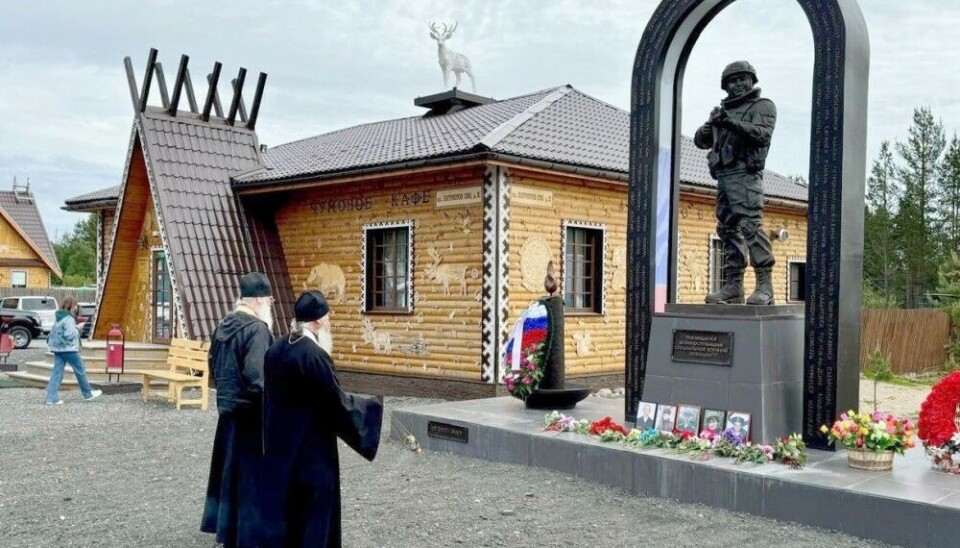
«Our community is doing all it can for our soldiers, and the memorial is an opportunity to show them respect and express pride,» Golovin says in a comment.
The statue in Lovozero is similar to several hundred other monuments currently erected across Russia.
The new monument design is firmly rooted in Soviet tradition. But many of the new memorials that now pop up across Russia express a new kind of militarism. And they are made in the middle of a war, not afterwards, as was mostly the case with 2WW.
Most of them could be described as plain and outright kitsch, but behind the simplistic and militant design style is a serious underlying motive.
Hundreds of thousands of young Russian men are either killed of crippled and Moscow is ardently seeking to justify the mass losses. The memorials glorify battle and death for the motherland and are actively used in the authorities’ war propaganda.
They express no peace and no reconciliation. On the contrary, they tell a story about a country preparing for continued war.
Even in the remotest and northernmost edges of the country, new monuments are appearing on village squares.
In Taz, a small town in the Taymyr region, the local mayor in December 2023 officially opened the memorial devoted to the ‘protectors of Russia.’
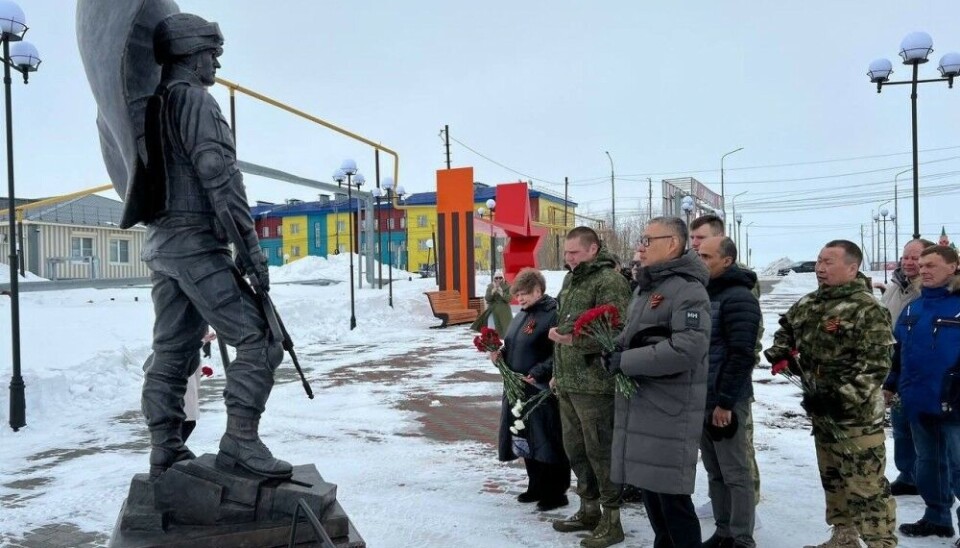
«Let this piece of art be a symbol of the resilient will power, courage and bravery of the warriors that through all times have stood up for the protection of our country and who today protect our country, its freedom and independence,» he said in a speech.
Shortly before, the governor of the neighboring Arctic region of Yamal-Nenets had opened a similar-looking memorial in the town of Novy Urengoy. In September, he took part in an opening ceremony in regional capital city of Salekhard and later also in Yar-Sale.
«It is important that the next generation of northerners knows their heroes and can honor their memory,» Governor Dmitry Artyukhov said in a speech available on his Telegram channel. «This kind of memorial sites will be built all over Yamal,» he underlined.
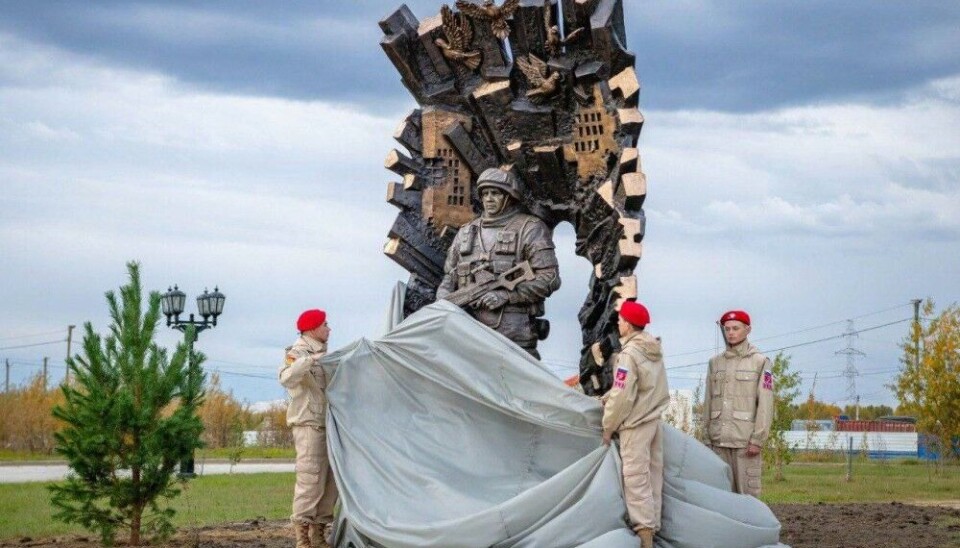
Also in the Kola Peninsula a number of new memorials have been erected. In the small military town of Luostary, a monument devoted to cavalry men killed in Ukraine was unveiled in April 2023, and in Zaozersk, the navy base, two new memorials popped up in the course of late 2023 and early 2024.
One of them is shaped in steel and shows the letters Z, V and O, the symbols of Russia’s war of aggression. The other is devoted to military truckers and includes two military vehicles, among them a Tigr all-terrain infantry vehicle. Both vehicles are marked with the «Z.»
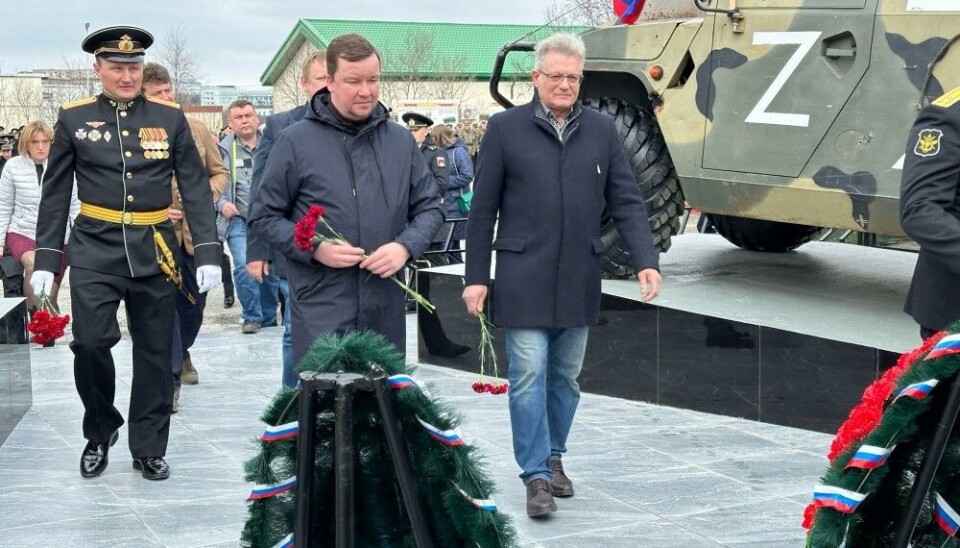
Moscow’s accentuated memory policy has led to a boost in the demand for war monuments and dozens of production companies are opening new manufacturing lines.
Among the monument producers is the Lit Art company in Moscow. The company and its sculptures Kirill and Marina Rakhmatullin are the ones behind the memorial in Luostary, Kola Peninsula.
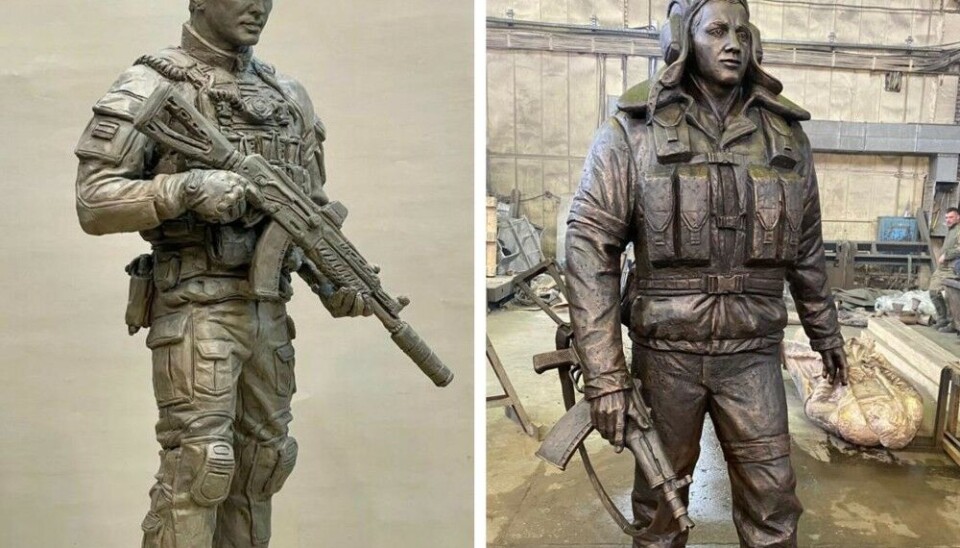
The Lit Art has over several decades designed and produced patriotic-style monuments ordered by the authorities. Among previous works is a monument devoted to servicemen in the FSB, placed at the Security Service headquarters in Lubyanka, Moscow.
Several companies also offer mass produced monuments. Many of them aim at the private market. The company Pilon Stone offers a wide range of memorials for soldiers killed in Ukraine. For 146,800 rubles (€1,570) families can get a grave stone with the image of a masked soldier equipped with a machine gun.
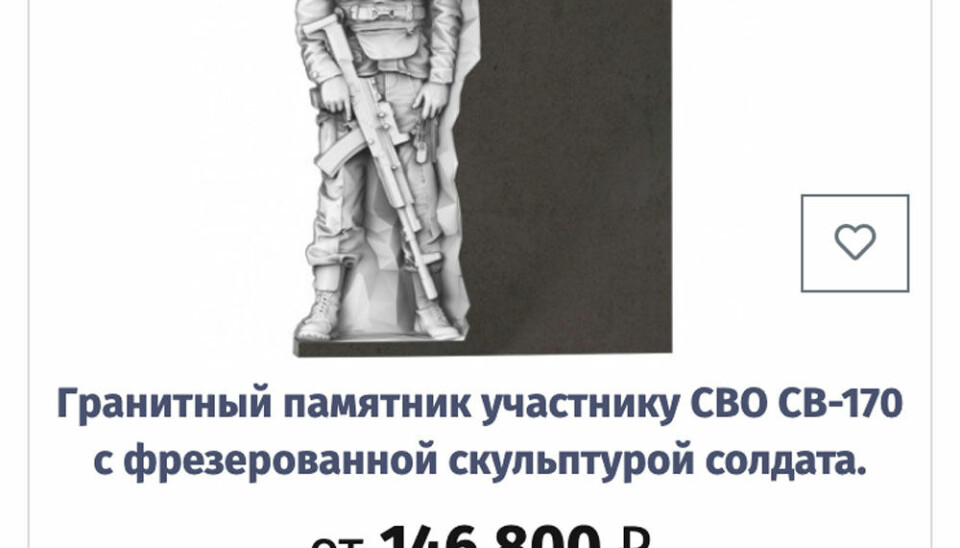
The private demand for grave stones have hiked following the massive deaths of Russian soldiers. The state has set up a separate support arrangment for families to acquire grave stones. In some regions, families can get up to 50,000 rubles (€524) for acquiring a memorial for their killed men.
But if they want something more than a simple stone plate, that sum will only cover a part of the costs. Judging from the price list of one of the monument producers, a major granite memorial with photo and accessories will cost more than 400,000 rubles (€4,200).


